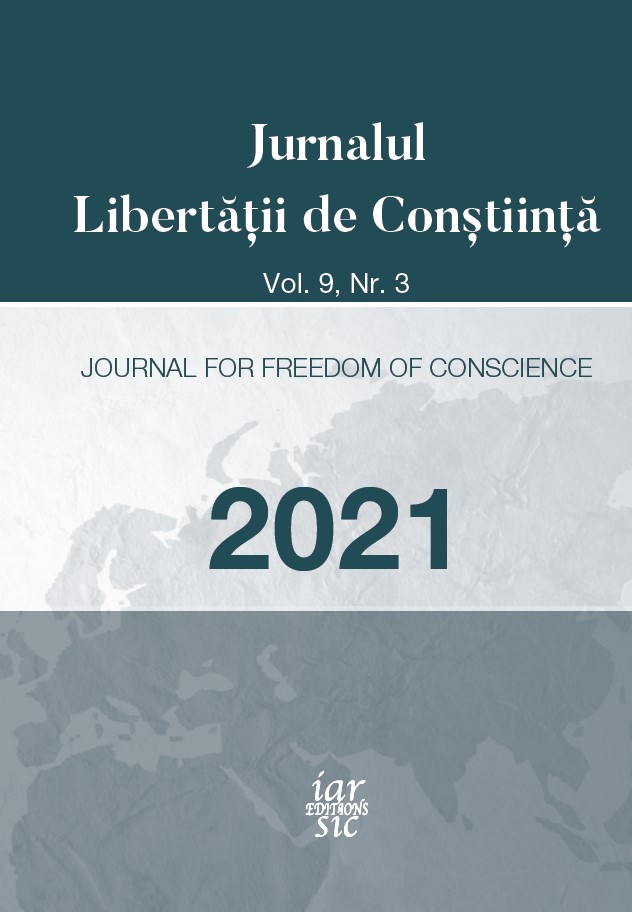ORIGINEA NATURII UMANE – FUNDAMENT PENTRU DREPTURILE OMULUI ÎN PROTESTANTISMUL TRANSILVĂNEAN: IDEEA DE ALTERITATE RELIGIOASĂ
The origin of human nature - fundament for human rights in Transylvanian Protestantism: the idea of religious otherness
Author(s): Botond Kund GudorSubject(s): Human Rights and Humanitarian Law, Local History / Microhistory, Biblical studies
Published by: Editions IARSIC
Keywords: human nature; tolerance; reform; freedom;
Summary/Abstract: Human nature is an inspiring topic debate for science, starting from antiquity until the present day. It represents a major interest in theology, pedagogy, psychology, ethics, political science, philosophy, history, including economics. Human nature is often seen in accordance with the natural laws, from which the premise of substantiating human rights arises. The return to human nature unaltered by sin is sought to be accomplished by primary Christianity. In the vision of early Protestantism, human nature becomes profoundly altered by the various manifestations of the innate sin. The bibliocentric understanding of human nature allowed the individual the right to reform. The Transylvanian legislation in this sense granted increased rights to new religious communities, the Lutherans, then Calvinists, finally Unitarians. The right of „iusreformandi” was constituted in religious rights. The freedom to confess thus becomes a heroic hypostasis of human nature liberated from traditions, their place being followed by new patterns of religiosity. The sinful human nature is considered capable of good: „simul iustus et peccator”. The Reforma saw the spreading of the Word as a mission of improving the corrupt human nature. This burst of freedom, which derives from the re-evaluation of freedoms springing from human nature, has given an important advantage to those who have opposed religious oppression. In accordance with the free and protestant human nature, the religious tolerance in Transylvania was molded on the pacifist idea of statehood followed by the need to maintain a balance of Protestant denominations. Human nature has thus shown its vulnerability to the extremely volatile confessional reality. In the Baroque period of Transylvania, religious freedom became an asset of the rights invoked by the religious minority, which saw the possibility of a pacification of man`s warring reality. The religious man thus becomes reconcilable with those around him (Irenicism, consensual theology) and in Sacred alliance with God (Coccejus, contractual theology). The French Revolution creates that pattern by which human nature is capable of achieving political freedoms and ethical standards without the help of faith. Freedom becomes a defining element of human nature. Human nature can be endowed with freedoms: civic responsibility, plurality, tolerance. The 20th century credited unconditional freedom to human nature: political, constitutional, religious freedom. In this sense, human nature can formulate aspirations beyond the primary needs of man (food, procreation), which from the point of view of Christianity can be classified ethically. The multi-secular Transylvanian religious experience is auspicious in this respect, whether it is about tolerance, about the tradition of coexistence or about practical solutions related to the individual’s religious choice or patrimonial solutions based on the pursuit of the common good.
Journal: Jurnalul Libertății de Conștiință
- Issue Year: 9/2021
- Issue No: 3
- Page Range: 214-229
- Page Count: 16
- Language: Romanian

